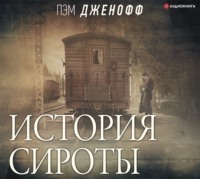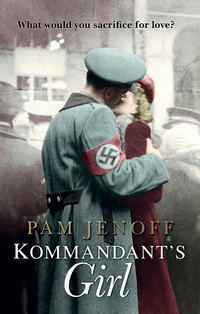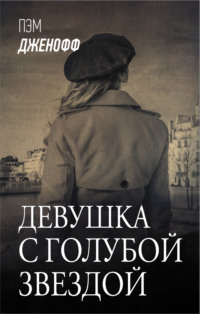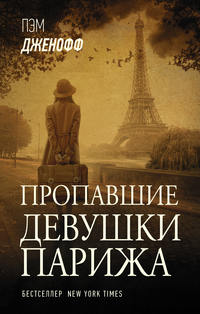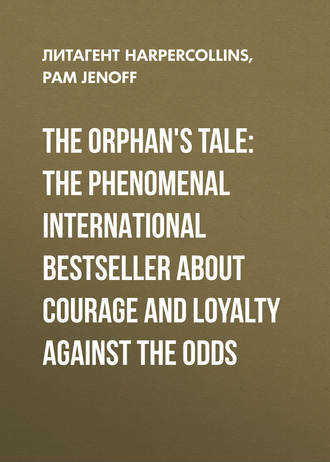
Полная версия
The Orphan's Tale: The phenomenal international bestseller about courage and loyalty against the odds
She sits on the bar and swings out, then lets go. I gasp as she starts to fall. But she catches herself by her knees and swings upside down. Her dark hair fans out beneath her, and her inverted eyebrows arch toward the ground. She rights herself and climbs back onto the platform. “Hock hang,” she informs me.
“How did you come to be with the circus?” I ask.
“I was born into a circus family nearby,” she replies. “Not this one.” She hands me the bar. “Your turn, for real this time.” She puts the bar in my hand, adjusting my grip. “Jump and swing by your arms.”
I stand motionless, legs locked. “Of course if you can’t do it, I can just tell Herr Neuhoff that you quit,” she taunts once more.
“No, no,” I reply quickly. “Give me a second.”
“This time you will swing by your arms. Hold the bar down here.” She indicates a spot just below my hips. “Then raise it above your head when you jump off to get height.”
It is now or never. I take a deep breath, then leap. My feet flail and I flop helplessly like a fish on a line, the furthest thing from Astrid’s own graceful movement. But I am doing it.
“Use your legs to take you higher,” Astrid calls, urging me onward. “It’s called the kick out. Like on a swing when you were a child.” I shoot my legs out. “Keep your ankles together.” It is working, I think. “No, no!” Astrid’s voice rises even louder, her dissatisfaction echoing across the practice hall. “Keep your body in a line when you return. First in the neutral position. Head straight.” Her instructions are rapid-fire and endless and I struggle to keep them all in my head at once. “Now kick your legs back. That is called the sweep.”
I gain momentum, swinging back and forth until the air whooshes past my ears and Astrid’s voice seems to fade. The ground slips and slides beneath me. This is not so bad. I had done gymnastics for years and those muscles bounce back now. Not the flips and twists that Astrid had done, but I am managing.
Then my arms begin to ache. I cannot hold on much longer. “Help!” I cry. I had not thought about how to get back.
“You have to do it yourself,” she calls in return. “Use your legs to swing higher.” It is quite impossible. My arms are burning now. I kick my legs forward to increase my momentum. I near the board this time, but it is not enough. I am going to fall, injure myself, maybe even die, and for what? With one last desperate kick, I send myself higher.
Astrid catches the ropes as I near the board, pulling me in and helping me to my feet.
“That was close,” I pant, legs trembling.
“Again,” she says coolly, and I stare at her in disbelief. I can’t imagine getting up there once more after nearly falling, much less right away. But to earn my keep, and Theo’s, I have no other choice. I start to grab the bar once more. “Wait,” she calls. I turn back hopefully. Has she changed her mind?
“Those.” She is pointing to my breasts. I look down self-consciously. They had grown fuller since I’d given birth, even though the milk had since dried up and gone away. “They’re too big for when you are in the air.” She climbs down the ladder and returns with a roll of thick gauze. “Take down your top,” she instructs. I look down at the practice hall below to make sure no one else is there. Then I lower the leotard, trying not to blush as she binds me so tightly it is hard to breathe. She doesn’t seem to notice my embarrassment. “You’re soft here,” she says, patting my stomach, an intimate gesture that makes me pull back. “That will change with training.”
Other performers have begun to trickle into the practice hall, stretching and juggling in opposite corners. “What happened to the last girl, the one who swung with you before me?”
“Don’t ask,” she replies as she steps back to study her work. “For the show, we’ll find a corset.” So she thinks I might be able to do it after all. I exhale quietly.
“Again.” I take the bar and jump once more, this time with a bit less hesitation. “Dance, use your muscles, take charge, take flight,” she pushes, never satisfied. We work all morning on that same swinging motion, kick out, neutral, sweep. I strive hard to point my toes and make my body exactly like hers. I attempt to mimic her patterns, but my motions are clumsy and unfamiliar, a joke in comparison with hers. I improve, I think. But no praise comes. I keep trying, evermore eager to please her.
“That was not awful,” Astrid concedes at last. She sounds almost disappointed that I am not a total failure. “You studied dance?”
“Gymnastics.” More than studied, actually. I practiced six days a week, more when I could. I had been a natural and I might have gone to the national team if Papa had not declared it a worthless endeavor. Though it has been more than a year after I had last trained and my stomach is weak from childbirth, the muscles in my arms and legs are still strong and quick.
“It’s just like gymnastics,” Astrid says. “Only your feet never touch the ground.” A faint smile appears on her face for the first time. Then it fades just as quickly. “Again.”
Nearly an hour passes and we are still working. “Water,” I pant.
Astrid looks at me in surprise, a pet she has forgotten to feed. “We can break for a quick lunch. And then after, we will begin again.”
We climb down. I swallow a capful of tepid water Astrid offers from a thermos. She drops to one of the mats and pulls bread and cheese from a small pail. “Not too much food,” she cautions. “We only have time for a short break and you don’t want to cramp.”
I take a bite of the bread she has offered me, taking in the now-bustling practice hall. My eyes stop on a heavyset man of about twenty in the doorway. I recall seeing him the previous night. Then, as now, he slouches idly, watching.
“Keep an eye out for that one,” Astrid says in a low voice. “Herr Neuhoff’s son, Emmet.” I wait for her to elaborate, but she does not. Emmet has his father’s paunchy build, and he does not wear it well. He is stoop-shouldered, pants gapping a bit where they meet the suspenders. His expression is leering.
Unsettled, I turn back to Astrid. “Is it always this hard? The training, I mean.”
She laughs. “Hard? Here in the winter quarters, this is rest. Hard is two and sometimes three shows a day on the road.”
“The road?” I picture a path, long and desolate, like the one I had taken the night I fled the station with Theo.
“We leave the winter quarters at the first Thursday in April,” she explains. “How’s your French?”
“Passable.” I had studied it a few years in school and found that I took to languages readily, but I had never quite mastered the accent.
“Good. We will go first to a town in Auvergne called Thiers.” That is hundreds of kilometers from here, I recall, seeing the map on the wall of my classroom at school. Outside of occupied Germany. Until last year, I had never left the Netherlands. She continues rattling off several additional cities in France where the circus will perform. My head swims. “Not so many this time,” she finishes. “We used to go farther—Copenhagen, Lake Como. But with the war it isn’t possible.”
I am not disappointed, though—I can hardly fathom traveling farther than Germany. “Will we perform in Paris?”
“We?” she repeats. I realize my error too late: it is one thing for Astrid to include me in the circus’s future plans, but to do it myself is overstepping. “You have to prove yourself before you can join us.”
“I meant, does the circus go to Paris?” I correct quickly.
She shakes her head. “Too much competition from the French circuses there. And too expensive. But when I lived in Berlin—”
“I thought you grew up in Darmstadt,” I interrupt.
“I was born into my family’s circus here. But I left for a time when I was married.” She fiddles with the gold earring in her left ear. “Before Peter.” Her voice softens.
“Peter...he was the man who was with you last night?” The somber man who sat in the corner of my room smoking had spoken little. His dark eyes burned intensely.
“Yes,” she replies. Her eyes turn guarded, like a door snapping shut. “You should not ask so many questions,” she adds, terse once more.
I had asked about only a few things, I want to point out in my own defense. But sometimes one question can feel like a thousand—like the previous night, when Herr Neuhoff asked about my past. There are so many other things I still want to know about Astrid, though, like where her family had gone and why she performs with Herr Neuhoff’s circus instead.
“Peter is a clown,” Astrid says. I look across the practice hall at the handful of other performers who have come in, a juggler and a man with a monkey, but I do not see him. I picture his large Cossack features, the sloped mustache and drooping cheeks. He could not have been anything but a sad clown, so fitting for these dreary times.
As if on cue, Peter enters the practice hall. He does not wear the makeup I would have imagined for a clown, but baggy trousers and a floppy hat. His eyes meet Astrid’s. Though there are others here, I suddenly feel like an intruder in the space between them. He does not come over, but I can feel his affection for her as he studies her face. He walks to a piano in the far corner of the hall and speaks with the man seated at it, who begins to play.
When she faces me, Astrid’s expression is hard and businesslike once more. “Your brother,” she says, “he looks nothing like you.”
I am caught off guard by the abrupt shift of topic. “My mother,” I feign. “She was very dark-skinned.” I bite my tongue, trying to counter my natural instinct of offering too much information. I brace for an onslaught of additional questions, but Astrid seems content to leave it alone and continues eating in silence.
At the end of the theater, Peter is rehearsing an act, goose-stepping with legs straight out, imitating with great exaggeration the march of the German soldier. Watching him, I grow nervous. I turn to Astrid. “Surely he isn’t planning to do that for the show?” She does not answer, but stares at him, her eyes narrow with fear.
Herr Neuhoff enters and crosses the hall with more speed than I would have thought he could manage, given his age and weight. He barrels toward Peter, face stormy. Had he seen Peter rehearsing through one of the windows or had someone told him about the routine? The music stops abruptly with a clatter. Herr Neuhoff confers with Peter. Though his voice is low, he gestures wildly with his hands. Peter shakes his head vehemently. Astrid’s brow wrinkles with concern as she watches the two men.
A minute later Herr Neuhoff clambers toward us, red-faced. “You must talk to him,” he thunders at Astrid. “This new act mocking the Germans...”
Astrid raises her palms plaintively upward. “I can’t stop him. That’s who he is as an artist.”
Herr Neuhoff will not let the matter go. “We keep our heads low, stay out of the fray—that’s how I’ve been able to keep this circus going—and protect everyone.” From what? I want to ask. But I do not dare. “Tell him, Astrid,” Herr Neuhoff urges in a low voice. “He’ll listen to you. Tell him—or I’ll pull him from the show.”
Alarm crosses Astrid’s face. “I’ll try,” she promises.
“Would he?” I cannot help but ask after Herr Neuhoff has walked from the building. “Pull Peter from the show, I mean.”
She shakes her head. “Peter is one of the circus’s biggest draws and his acts are what hold the whole thing together. Without him, there is no show,” she adds. But she is still upset. Her hand shakes as she puts her sandwich away, largely uneaten. “We should keep going and rehearse the next bit.”
I take a bite, swallow hurriedly. “There’s more?”
“You think people will pay just to see you hang there like a monkey?” Astrid laughs harshly. “You’ve only just started. It is not enough to simply swing back and forth. Anyone can do that. We need to dance in the air, do things that seem impossible. Don’t worry, I will line up your trick so that when you release and fly, I’m in place to catch you.”
The bread I’ve just eaten sticks in my throat as I remember the way she tumbled through the air. “Fly?” I manage.
“Yes. That’s why it is called the flying trapeze. You are the flier and you will release and come to me. I will be the catcher.” She starts for the ring.
But I remain in place, feet planted. “Why must I be the one to let go?” I dare to ask.
“Because I would never trust you to catch me.” Her voice is cold. “Come.”
She heads for a ladder on the other side of the room, parallel to the one we’d climbed earlier, but with a sturdier-looking swing. I follow, but she shakes her head. “You go on that side with Gerda.” She gestures to another aerialist whom I hadn’t seen come in and who is already climbing the ladder Astrid and I had used previously. I follow her. At the top, Astrid and I stand on opposite platforms, an ocean apart from one another. “Swing just like before. And when I say, you let go. I will do the rest.”
“And Gerda?” I ask, stalling.
“She will send the bar back for you to catch on the return,” Astrid replies.
I stare at her, not believing. “So I have to let go twice?”
“Unless you have wings, yes. You have to get back somehow.” Astrid grabs the opposite bar and leaps, then swings around so she is hanging by her legs. “Now you,” she prompts.
I jump out, kicking my toes high. “Higher, higher,” she urges, her arms extended toward me. “You have to be above me when I tell you to let go.” I force myself upward, driving with my feet. “Better. On my cue. Three, two, one—now!” But my hands remain stuck to the bar.
“Fool!” she cries. “Everything in the circus depends upon timing, synchronicity. You must listen to me. Otherwise you will get us both killed.”
I manage my way onto the board, then climb down the ladder and meet Astrid back on the ground. “You let go in gymnastics, surely,” she says, clearly frustrated.
“That was different,” I reply. By about thirty-five feet, I add silently.
She folds her arms. “There’s no act without the release.”
“There is no way that I can do this,” I insist. We stare at each other for several seconds, neither speaking.
“You want to go, so go. No one expected more.” Her words shoot out at me like a slap.
“Least of all you,” I retort. She wants me to fail. She does not want me here.
Astrid blinks, her expression somewhere between anger and surprise. “How dare you?” she asks, and I fear I have gone too far.
“I’m sorry,” I say quickly. Her face softens somewhat. “But it’s true, isn’t it? You don’t think I can do it.”
“No, I didn’t think this would work when Herr Neuhoff suggested it.” Her tone is neutral, matter-of-fact. “I still don’t.”
She reaches out and takes my arm and I hold my breath, hoping for a reassuring word. Instead, she rips the tape off my wrist. I let out a yelp, my skin screaming at the burn. We stare at each other hard, neither blinking. I wait for her to tell me I will have to leave here, as well. Surely they will make us go.
“Come back tomorrow,” she relents, “and we will try it again one last time.”
“Thank you,” I say. “But Astrid...” My voice sounds pleading. “There must be something else I can do.”
“Tomorrow,” she repeats before walking away. Watching her retreat, my stomach leadens. Though grateful for the second chance, I know it is hopeless. Tomorrow or a year from tomorrow, I will never be able to let go.
6
Noa
Theo lies across my chest, the way he likes to sleep, the warmth of his cheek pressed against me. “You should lay him down,” Greta, the housemaid who watches Theo while I rehearse, has scolded more than once in the two weeks we have been here. “If he doesn’t learn to soothe himself, he’ll never sleep well.” I don’t care. During the day whenever I am not practicing, I hold Theo until my arms ache. I sleep with him close each night so I can feel the beating of his heart, like one of the dolls I had as a child come to life. Sometimes it seems as if without him I cannot breathe.
Lying now in the stillness of the women’s lodge, I watch him rise and fall atop me on the narrow bed. He stirs, lifting his head as he has just learned to do. Theo’s gaze follows me wherever I enter a room. A wise old soul, he seems to listen intently, missing nothing. Our eyes meet now and he smiles, a wide, toothless grin of contentment. For a few seconds, it is only us in the world. I wrap my arms more tightly around him. There is that moment each evening when Astrid frees me from practice, just before I enter the lodge, when joy and anticipation at seeing Theo rise in me. Part of me fears that he might have been a figment of my imagination, or have disappeared because I had been gone so long. Then I pick him up and he melts into my arms and I am home. Though it has been only a few weeks, I feel as if Theo has been mine forever.
There could be two boys, I remind myself—if I found my child again. Could such a thing be possible? I picture the boys together at three or four. They would be like brothers close in age, almost twins. These are dangerous thoughts, the kind I have not allowed myself to have until now.
I draw the blanket more closely around myself. I dreamed of my own family last night. My father had appeared at the edge of the winter quarters and I ran up to hug him and plead with him to bring me home. But I had awoken to the cold light of day seeping in. Going home is a dream I’ve held on to for all of my months in exile. When I arrived at the circus, I imagined staying a few weeks to get my strength back and then finding a normal job to earn enough money to go back to Holland. My parents were not able to accept me with a child of my own, though; they will never welcome me back with Theo. No, I cannot go home. I still need to get Theo out of Germany somehow, though. We cannot stay here.
The crashing of metal stirs me from my thoughts. The sounds of the circus come early in the morning, the laughter and arguing of the performers as they go to practice, workers fixing wagons and other equipment, animals whinnying in protest. Once, if I had given it any thought, I might have imagined joining the circus to be fun. But it is an act and behind the careful choreography is hard work. Even in the winter quarters, where circus folk supposedly come to rest, they are up before dawn to help with the chores, then hours of training, at least six per day.
Reluctantly I sit up and place Theo in his bassinet. His eyes follow me as I wash at the basin. I make the bed, running my hands along the sheets, which, though so much coarser than the fine linens in the villa, were still worlds better than anything I had slept on since leaving home. I moved to the lodge the day after I arrived. It is a long room, beds laid out dormitory-style in two rows. The lodge is nearly empty, most of the other girls already gone to practicing and chores. I dress quickly then start for the door with Theo. I do not want to appear lazy. I need to work hard to earn my place here.
I carry Theo to the front of the lodge where a handful of toddlers play on the ground. Reluctantly I hand him to Greta, who draws him close, tickling his chin until he coos. Jealousy nags at me and I fight the urge to grab him back. I still do not like sharing him.
I tear myself away and set out from the lodge toward the practice hall. Winter has begun to ease. There is a little less bite in the air and the snow has begun to melt, leaving the ground muddy and smelling of peat moss. The birds that hunt seeds call out merrily. If the weather permits, in the evenings before it gets too dark I walk Theo around the circus grounds, past the practice hall to the menagerie where the tiger and lions and other animals are penned, looking out of place against the snow-covered pine landscape like characters in the wrong storybook. It seems there are endless places at the circus to explore, from the work quarters where laundry is done by the truckload to the circus alley where some of the clowns rehearse.
I near the practice hall and pause, trying to push down my dread. Though I have trained with Astrid every day, I still have not let go and flown. Each day I wait for her to give up and tell me to leave. Come back tomorrow, she simply says.
She has not kicked me out yet. But she treats me like a nuisance, makes it clear that she would rather not have me around and is only tolerating me until I go. I puzzle over again what brings out such dislike. Is it because I am new and lack talent? And yet, she is not always mean. A few days after I arrived, she had brought me a small box. Inside were folded clothes for me and Theo. Everyone had contributed something. Lifting out the faded baby caps and socks, the blouses for me that had been darned many times over, I was touched, not only by the generosity of the circus folk, who themselves had little to spare, but by Astrid, who had thought to gather the items. Perhaps she did not want us to leave after all.
The previous day as I neared the practice hall, though, I’d heard her and Herr Neuhoff speaking in low voices. “I’m doing all I can,” Astrid said.
“You must do more,” Herr Neuhoff countered.
“I cannot get her ready if she will not let go,” Astrid pressed. “We have to find someone else before it is time to go on the road.” I walked away then, not wanting to hear what would happen if the arrangement did not work out. I had originally said I would try for only two weeks. But now that time has passed, I find myself wanting to stay longer and keep trying—and not just because we have nowhere else to go.
When I enter the training hall, I am surprised to find Astrid already atop the high board where I usually stand. Am I late? I brace for her to berate me. But she grabs the bar and leaps off.
“Hup!” Gerda swings from the far board to catch her. A strange lump forms in my throat as I watch Astrid work with someone else. But I see how much she misses it, being the one to fly through the air. She must hate me for taking her place.
Gerda sends Astrid flying back, then swings to her own board. Astrid soars now like a rider taming a wild beast, bending the trapeze to her own will. She spins by her ankles, by a lone knee, barely touching the bar to which I always cling fast. Gerda watches Astrid with disinterest, almost distaste. She and the other women do not like Astrid. Within days of arriving, I heard the whispers: they resent Astrid for returning and taking her spot at the top of the aerial act while they had worked for years, and for coupling up with Peter, one of the few eligible men the war had left. The girls at the home were much the same, sniping and whispering behind each other’s backs. Why are we so hard on one another? I wonder. Hadn’t the world already given us challenges enough? But if Astrid notices their coldness, she doesn’t seem to mind. Or perhaps she just doesn’t have need for any of them. She certainly doesn’t need me.
“She’s magnificent, isn’t she?” a deep voice asks. I had not heard Peter come up behind me. We stand silently watching as Astrid swings higher. Taking her in, his eyes seem to dance with wonder. Peter’s breath catches slightly as Astrid flings herself into the air and spins not once, not twice, but three times. She circles upward, defying gravity.
But then she starts to drop downward at great speed. Peter steps forward then stops, powerless to help her. He exhales quickly when Gerda, who has swung out, grabs her by one ankle, catching her before she catapults to the ground. “The triple somersault,” he says, recovering from his fright. “Only a few people in the world who can do that.” Though he tries to sound nonchalant, a faint sweat has broken out on his brow and his face has gone slack with relief.
“She’s amazing,” I reply, my voice full with admiration. In that moment, I do not just want to be like her—I truly want to be her.
“If only she wasn’t such a danger to herself,” Peter says, so low under his breath I’m not sure I am meant to hear.
Astrid reaches the board and climbs down the ladder to us. Her skin is coated with sweat, but her face glows. She and Peter stare at each other with a hunger that makes me embarrassed to be in the room, though they had surely been together just a few hours earlier since Astrid’s bed in the lodge had been empty all night.


